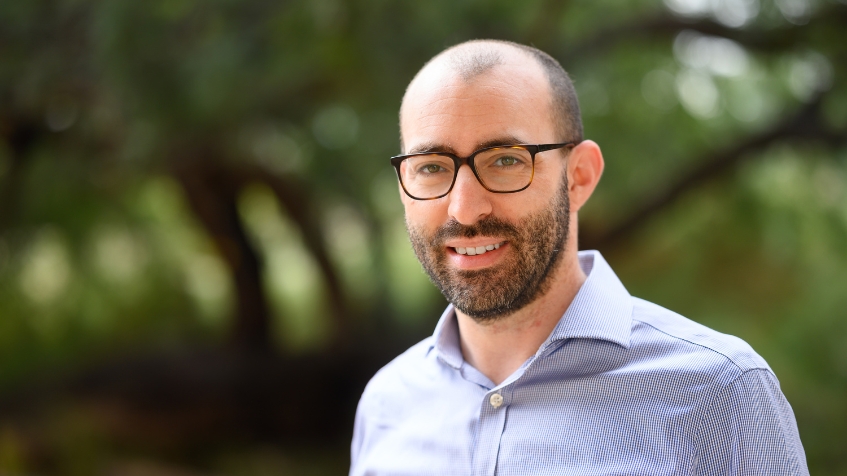
Dr. Tal Golan
Department of Cognitive and Brain Sciences - The Inter-Faculty Brain Sciences School

My life before BGU:
I was born and grew up in Kfar Saba. I obtain my bachelor’s, master’s and doctoral degrees at the Hebrew University of Jerusalem. After completing my PhD in a neural computation track in brain sciences, I was a postdoctoral fellow at the Zuckerman Mind Brain Behavior Institute at Columbia University in NY.
Why BGU?
My research is located on the interstices of artificial intelligence and human cognition. The multidisciplinary nature of the Department of Cognitive and Brain Sciences and of the Brain Sciences School at BGU fosters fruitful connections for myself and my research group and enables extensive collaborations with researchers on either side; brain and cognition on the one hand, and machine learning on the other.
My research:
The revolution in deep learning has given us new tools for understanding the brain. For the first time, we can realize theories in brain sciences and cognitive psychology as algorithms; artificial neural networks that we can run through computers and compare quantitatively and qualitatively – with human behavior. We can even open the box and compare the inner workings of these networks with the signals we obtain from human
brains through brain imaging. In my research, I develop new methods for comparing cognitive functions, such as visual perception, of humans and networks. I conduct experiments that directly compare natural systems (the human brain) with artificial ones and try to improve the artificial systems so that they constitute a better model of the way we think and act.
Visit my lab here: brainsandmachines.org
An insight from my research:
One the key questions in both brain sciences and artificial intelligence is what is the learning task underlying intelligent behavior. What is a baby’s brain trying to learn as it develops? One possible answer that is gaining prominence in recent years is that the brain is attempting to create a generative model of the world. Or, in other words, the brain is attempting to create an internal model of the external elements that leave an impression on our senses. It appears that the brain even tries to predict how these elements will act in the future. Like nearly any good idea, this is actually an old idea that emerged already in the 19th century. But it is only now that we are beginning to be able to build machines that apply it, and compare them with human behavior.
Something that doesn't appear on my CV:
I try to always leave time for a good book, even after hours of reading academic articles.
In Brief:
- Car or train? Train of course. The carbon footprint is 5 times smaller.
- Phone call or text message: whatever you want, just please don’t leave me a WhatsApp voice message.
- Savory or sweet? My postdoc in NY taught me: why not both?
- Facebook or Twitter? Obviously, Twitter. See you there! @talgolanneuro


